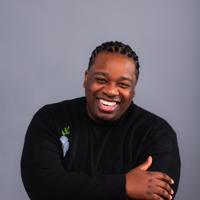The Gospel Choir Sound: A Practical Pedagogical Exploration
Tuesday 30th April 2024, 5:00 PM - 6:00 PM (London Time)
'The Gospel Choir Sound: A Practical Pedagogical Exploration' is a course that is meant to help all types of singers and voices understand some of the essential methods behind the gospel choir sound in the African-American church and to hopefully have the ability to access and make use of these tactics and techniques in a tangible and efficient way.
In this course, we will discuss some of the basic terminology and history of the gospel choir in the African-American church while exploring basic pedagogical facets that can help clarify how gospel choirs sing. We will also explore how some words that are often used in the gospel choir setting can sound and be more familiar than you think. We will take a look at how these similar terms can help demystify the bridge of separation in terms of musical and vocal production between this genre and other genres.
Additionally, we will examine how these pedagogical facets are sometimes adjusted due to regional or aesthetic differences as well as define the different voice parts, the theoretical phonatory production of these parts/sections, and how these parts can slightly differ from the traditional system of voice classification.
..and, if time allows, we may even formulate a gospel choir during the course and learn a small portion of a song in the logistical and environmental settings that many gospel choirs typically learn music in.
Jaron M. LeGrair
Jaron M. LeGrair is a singer, voice researcher, voice teacher, music director, professor, educator, author, and entrepreneur. As an entrepreneur, he founded the Jaron M. LeGrair Studio, an international studio that specialises in providing voice training and goods for vocal health for singers and speakers.
Sorry, this is an archived short course...
We have plenty of upcoming short courses coming soon. See details of some of them below or look at the full list of short courses.

Thursday 19th February 2026
1:00 PM - 2:30 PM
Thursday 26th February 2026
1:00 PM - 2:30 PM
(London Time)
Performing Pain: Vocal Health in Emotional Roles!

Louisa Morgan
How connected are acted emotions to our real-life emotions? Are they expressed differently? Do they feel different in the body? This 2-part course with Louisa Morgan looks at the potential impact of acted emotion on vocal health, why we should consider it as voice practitioners, and how to care for our performers needing to work with it.


Tuesday 24th February 2026
5:00 PM - 7:00 PM
(London Time)
Incorporating CBT principles within vocal health and voice care

Dr Luke Aldridge-Waddon
Join Dr Luke Waddon as he introduces the principles and techniques within cognitive-behavioural therapy (CBT) in relation to the voice and voice care. He will discuss psychological factors relevant to the development and maintenance of voice disorders and how these might be approached from a cognitive-behavioural perspective. He will describe theoretical concepts and therapeutic components often used within CBT and consider how these might be applied when working with voice users.


Tuesday 3rd March 2026
5:00 PM - 7:00 PM
(London Time)
Sex differences in VOICE!

Dr Richard Lissemore
This two-hour workshop, led by performer, articulatory phoneticist, and voice physiologist, Dr. Richard Lissemore, will examine in detail the role that biological sex plays in the perception and pedagogy of singing voices. We'll consider how parameters such as anatomy, physiology, articulation, resonance, and radiated acoustics influence the perceptions and pedagogical decision-making of singing teachers.
